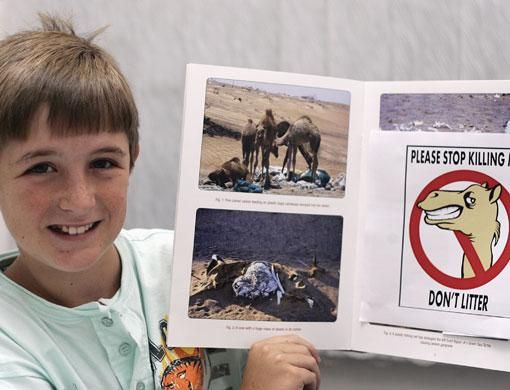Dubai: Plastic waste in the UAE is still causing the death of hundreds of animals. Nearly a year on since UAE residents were shaken up by the effect of plastic on wildlife and nature, the situation has not improved at all, according to a leading veterinarian.
Dr Ulrich Wernery, scientific director at the Central Veterinary Research Laboratory in Dubai told Gulf News that despite efforts to alert the public on what throwing litter really amounts to, plastic is still killing animals.
In January this year Dr Wernery alerted Gulf News to the amount of plastic bags and waste being ingested by camels and gazelles that turns to calcified rocks weighing up to 60km suffocating and killing them.
"There is no change," he said. "There are more and more people talking about plastic pollution but there has been no change from what I am seeing everyday."
"If you go to the desert you will see what I am talking about. People are coming back from camping trips devastated at the amount of waste - and it is getting worse," he said. "In supermarkets you only really see a few people with their own bags."
Dr Wernery projects that it will take many more years for a real change to become visible and for people to really start caring about not throwing rubbish carelessly. "It is very sad. There is no change and no decline. I see animals dying on the table everyday.
"We do a post mortem and find plastic in their intestines. Action has to be taken from the top," he said.
A young Abu Dhabi resident that did take action is Cameron Oliver, 11 who created his own 'Don't Litter' campaign following Gulf News' coverage of Death Valley, a Ras-Al Khaimah plain covered in plastic and other waste Dr Wernery nicknamed after he found a number of animal carcasses there.
Rewarded
Oliver was rewarded for his hard work with an Abu Dhabi Award presented by General Shaikh Mohammad Bin Zayed Al Nahyan, Crown Prince of Abu Dhabi and Deputy Supreme Commander of the UAE Armed Forces.
"I was there and I am very proud of Cameron. I was invited by his family. He saw the Gulf News article and wanted to start something at his school.
"His promotion of the anti-plastic campaign was really very good," Dr Wernery said.













